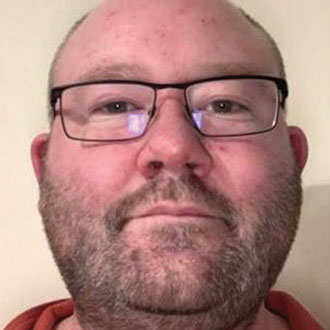How GPs have been reacting to the ‘Blue Book’


Alan McDevitt 300×300
Dr Alan McDevitt, chair of the Scottish GPC
‘I truly believe that we have negotiated a contract that will make general practice sustainable for the future. Our aim was to reduce workload pressures, reduce individual risk and stabilise practice income, and these are all addressed in this contract. This historic agreement will help make general practice an attractive career choice once more.’

dr david hogg 330x330px
Dr David Hogg, chair of the Rural GP Association of Scotland said:
’While we are delighted that some of our city-based GP colleagues are going to see a much-needed boost to their resources, it is very wrong that this should be at the expense of rural general practice. Rural patients, particularly those who are elderly, vulnerable or on low wages, rely more on local GP health services in order to access appropriate care. Rural GP teams provide a much wider range of services as we offer many treatments that would normally be provided in hospital. Much of this work remains unfunded. In addition, our members are called upon to administer life-saving care in remote areas, often for long periods before the ambulance arrives.
’Furthermore, recruiting GPs to rural practices is extremely challenging and the concerns of our younger members about the proposed contract indicate that this will become very much worse.’

dr chris black 330x330px
Dr Chris Black, joint secretary of Ayrshire and Arran LMC
‘I think it’s pretty good. There are two different models, GPs employing the multidisciplinary teams or the NHS employing them reducing the risk to the GP.
‘It’s going to be vital [to attract new GPs], when you speak to younger GPs colleagues, the are apprehensive about partnerships and they like the idea of this model that offers them more protection.
‘In Ayrshire and Arran, the primary care department are quite supportive and we have been developing a multidisciplinary team business case so we are a bit ahead of the game. It is going to be staff dependent but because we have been thinking in this direction for some time it does put us in a slightly better position than some other areas.’

dr miles mack 330x330px
Dr Miles Mack, former chair of RCGP Scotland
‘The autonomy GPs have to employ and manage their team appears will be lost in the new GP contract.
‘We will be giving this up with no assurance on workload control and T&Cs far short of those enjoyed by Consultants. Seems odd…’

dr cathy welch 330x330px
Dr Cathy Welch, a GP on the Isle of Arran, Scotland and a Pulse blogger
‘I will be voting a resounding NO. When first released, I was feeling positive about the new contract, Now, with a mixture of hindsight, deeper contemplation and further information, I realise many fatal flaws in the whole proposal.
‘This proposal seriously risks destabilising >50% of rural practices to the point of irreversible collapse and the prospect of HMRC declaring the new contract as “employment” will also place additional pressures on over-stretched health boards. There are no guarantees that payment protection will not later lead to gradual removal of funding for other Local Enhanced Services, leaving GPs to once again take on unfunded services to maintain access for their patients.
‘The wording is hopeful and idealistic, and superficially appealing to naive, desperate or ‘winners’ eyes. But this is a poison chalice, unsustainable from the outset for 20% of the Scottish population, and full of trap doors for all Scottish GPs and other practice staff.’

susan bowie 330x330px
Dr Susan Bowie, GP in Hillswick, Shetland Islands, and secretary of Rural GP Association of Scotland [speaking in a personal capacity]
‘There is nothing in it for remote and rural as far as I can see, and the change is worrying. I think the boards across Scotland will use this contract to “make do” with fewer doctors. I can see small practices amalgamating, and the service may look very different in a few years.’

Tom Black 300×300
Dr Tom Black, chair of Northern Ireland GPC
‘What has happened in Scotland is hugely significant in terms of funding streams. Scotland has about 1/10 of England’s population and £250m is a tenth of the £2.4m that came with the GP Forward View in England. If we were to get an equivalent cut, it would be worth £120m – that would be the same sort of investment.
‘Dr McDevitt has a huge advantage in that he has the health minister and SNP who seem fully invested in general practice. I don’t have these advantages. We need to be more careful and probably are more wedded to the independent contractor model until we see where things are politically.’

Charlotte Jones 300×300
Dr Charlotte Jones, GPC chair Wales
‘There are elements [of the Scottish contract] we absolutely love. Those would be around premises, that’s really positive because that’s one of the biggest barriers to new entrants to partnership. I also really like the shared data control and we really like the protected professional time for GPs.
‘There is some really good stuff in there and it is really good to see this in black and white.’
Dr Erik Jespersen, GP partner in a large practice in Oban
‘There is an intention to move to a salaried model and they’re doing the ground work – direct reimbursement of expenses, pay scale, consultant equivalent, and allocation of money based on workload and number of doctors. I don’t think GPs are daft enough not to see through that.
‘I would like that we either become properly independent, responsible for the pharmacist, nurses, etc and we will have much bigger teams or we become completely salaried we have limited responsibility and work set hours and have set pay scales. What we’re getting is the worst of both worlds where we are still responsible for essential services with no control over other aspects of workload to be done by other employees of the health board.’
Dr Iain Kennedy, medical secretary of Highland LMC
‘There has been quite a mixed response and it is fair to say we all see the positives, and being recognised as an expert medical generalist and being able to demonstrate clinical leadership is attractive. We are already benefitting from the dismantling of the QOF. Everyone welcomes the focus on the expanded clinical teams because that is going to help workload and likes the fact there is a promise to maintain funding for enhanced services. And premises is a real positive for everyone, the sustainability loan is a gift horse and a huge attraction.
’We like the fact the independent contractor model will continue although most of us don’t believe it will continue indefinitely as all the signs are that we are being taken in the direction of salaried. The main concerns for GPs in Highland are around the rural package – they are not confident the rural package is going to appear and that it is going to be robust and protect us from health board cuts. The loss of autonomy is also a major concern as at the moment we have the ability to directly employ clinical staff and some influence on the design and delivery of services.’
Dr Sandesh Gulhane, BMA representative for GP trainees West of Scotland
‘The first thing to say is I support the contract. It’s not perfect and it’s never going to be perfect but it is such a big step forward. It is making being a GP or being a partner more attractive and that’s really the crux of it. The key really will be how it’s implemented and that is the bit that will make or break how people feel.’
‘Currently a GP is not just a GP and if you want to be a partner you have to be trained in how to run a business. We have reduced the need for that to get around the idea that you have to buy into a practice which just becomes a real headache. It will start to promote general practice as a choice.’
Pulse survey results in full
Will you be voting for or against the contract when it goes out for ballot?
For: 33%
Against: 32%
Undecided: 35%
Has the BMA done a good job in negotiating this contract?
Yes: 33%
No: 39%
Don’t know: 28%
Will the contract have a positive or negative effect on the following?
Pay
Positive: 18%
Negative: 33%
Neutral: 38%
Don’t know: 11%
Workload
Positive: 43%
Negative: 22%
Neutral: 25%
Don’t know: 10%
Recruitment
Positive: 30%
Negative: 38%
Neutral: 21%
Don’t know: 11%
Patient care
Positive: 25%
Negative: 34%
Neutral: 30%
Don’t know: 11%
The survey was launched on Wednesday 15 April 2017, collating responses using the SurveyMonkey tool. The nine questions asked were focused on the Scottish contract. Only GPs in Scotland were allowed to answer the survey. The survey was advertised to readers via our website, email newsletter and a £50 John Lewis token incentive for the GP who referred the most colleagues. There was a further incentive of a prize draw for a £50 John Lewis token to complete the survey. A total of 205 GPs answered the questions
Pulse October survey
Take our July 2025 survey to potentially win £1.000 worth of tokens










